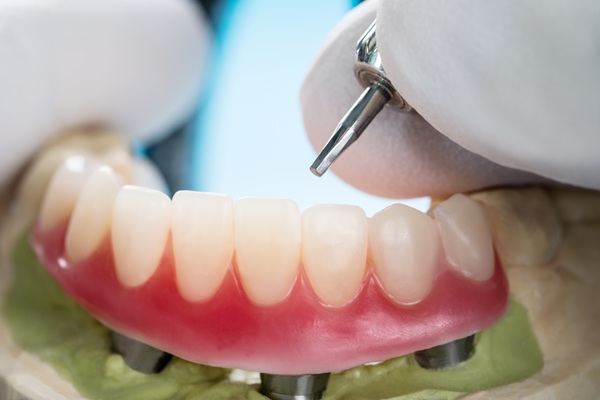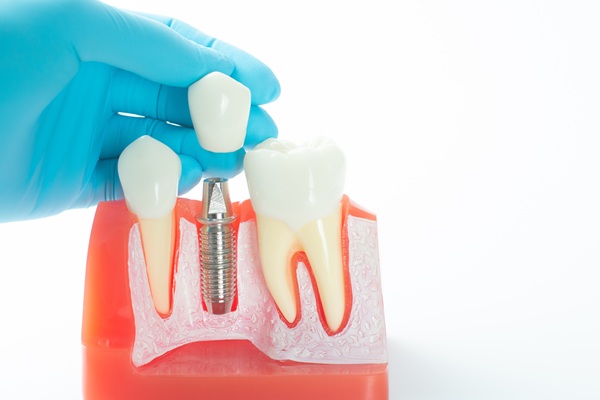Stages of Periodontal Disease

Part of having good oral health is avoiding periodontal disease and maintaining healthy gums. Unfortunately, gum disease is a common issue that people have, though it is preventable. You can take everyday steps to avoid problems with your gums. If you neglect these needs, you can experience severe consequences. You should understand periodontal disease and how it can affect you and your overall health.
Maintaining good oral health
Though periodontal disease is not uncommon, people can avoid it with some good oral hygiene habits. From the time a child first gets teeth, brushing is vital. People should brush at least twice a day with fluoride-based toothpaste. This will clean the teeth and prevent the formation of plaque. Brushing after meals and before bedtime is especially helpful in preventing periodontal disease.
Daily flossing is another step that people should not neglect. When flossing, make sure to do it gently but thoroughly. The individual should thread the floss between each tooth, spending about two minutes on the activity. Flossing loosens food particles and other debris from the teeth and gumline. It can also be helpful to rinse regularly with an antiseptic mouthwash.
Gingivitis
Before periodontal disease afflicts a person, gingivitis develops. Here, plaque starts to build up around the teeth. The gums will become red and puffy and may bleed during brushing and flossing. Gingivitis, however, is reversible because it has not yet attacked the bone. A person with this condition may feel little to no discomfort or pain.
Slight periodontitis
At this point, the bacteria spread and begin to affect the bone in the mouth. As a result, bone loss can start to occur. Though a periodontist cannot reverse the effects of the disease at this stage, it is possible to manage the symptoms. Treatments are available, such as root planing and scaling.
Moderate periodontitis
Without treatment from a periodontist, gum disease can advance to more moderate stages. The bacteria pockets between the teeth will grow. More bacteria will find itself into the bone, causing further loss. The patient will start to experience discomfort at this point. Aggressive treatment for periodontal disease is necessary.
Advanced periodontal disease
The last and most serious stage of the disease is when tooth loss can start. The loss of bone will cause the teeth to become loose and fall out. The patient will also have difficulty chewing and may have sensitivity and pain in the teeth. There may also be oozing pus coming from the gums.
In advanced periodontal disease, the infection will start to spread. It can get into other areas of the mouth and face. Eventually, the infection can get into the bloodstream. This can contribute to heart attacks and strokes.
Benefits of treating periodontitis
Detecting and treating gum disease early gives way to more favorable results. The treatments may take several visits, especially if the gum disease is severe. Making time for dental appointments can help improve one’s gum health. Here are the benefits of getting periodontal therapy:
- It beautifies the smile. The gums will look and feel healthier after the treatment. Bleeding, discoloration, and discomfort will go down. The clean gums will encourage an individual to smile more.
- It freshens the breath. Foul breath is a sign of gum infection. This is a result of poor oral care. Plaque and tartar will keep forming below the gumline. Periodontal therapy can reduce the odor and even freshen the patient’s breath.
- It relieves pain. Gum disease causes sore, bleeding gums. This can make one feel uncomfortable and self-conscious. Gum therapy can improve the situation.
- It removes possible health problems. Oral health is connected to general health. Early treatment of gum disease can prevent oral bacteria from reaching the bloodstream and the other parts of the body.
The dentist can provide antibiotics for the gum infection. This can help kill off harmful pathogens and give the gums time to heal. Some patients may need orthodontic correction. This treatment can lower the stress from misaligned teeth, which increases one’s risk for infection.
Scaling and root planing can help remove the hard tartar. It can also remove infections along the dental roots. Getting rid of the infection allows the gums to heal. This treatment can also stop any level of inflammation.
Be diligent about preventing periodontal disease
You need to take periodontal disease seriously and always be vigilant about your gum health. Regularly brushing and flossing is vital. If a periodontist diagnoses you with gum disease, get treatment promptly. As you learn about the stages of this disease, you can know what to do to prevent it and care for it effectively.
Are you considering getting periodontal treatment in the Palm Beach Gardens area? Get more information at https://corderoperiodontics.com.
Check out what others are saying about our dental services on Yelp: Periodontics in Palm Beach Gardens, FL.
Recent Posts
Periodontal health goes beyond periodontal treatment at the dentist's office and a consistent oral care routine. Increasingly, research is shedding light on the intricate connection between nutrition, lifestyle, and periodontal health.In this post, we explore the integration of nutrition and lifestyle into periodontal treatment, highlighting the transformative impact that it can have on preventing and managing…
Periodontal treatment from a periodontist is a great way to address a range of gum and jawbone concerns. They can also treat issues like missing teeth. This review discusses the various treatment options that are available for patients who consult a periodontist and highlights the signs that indicate a need to visit this specialist.Popular treatment…
A periodontist will examine your complete medical and dental history on your first visit to the office. This is to check if you react to specific medications and have any pre-existing disorders impeding your dental care. Your periodontist will then perform a comprehensive gum examination to look for signs or symptoms of illness.In certain situations,…
Periodontics and dental implants are two areas of dentistry that often go hand in hand. Both of these treatments are important for helping to preserve the health and beauty of your smile. While periodontics is focused on treating diseases of the gums and bone, dental implants are focused on replacing lost teeth with artificial ones.…


